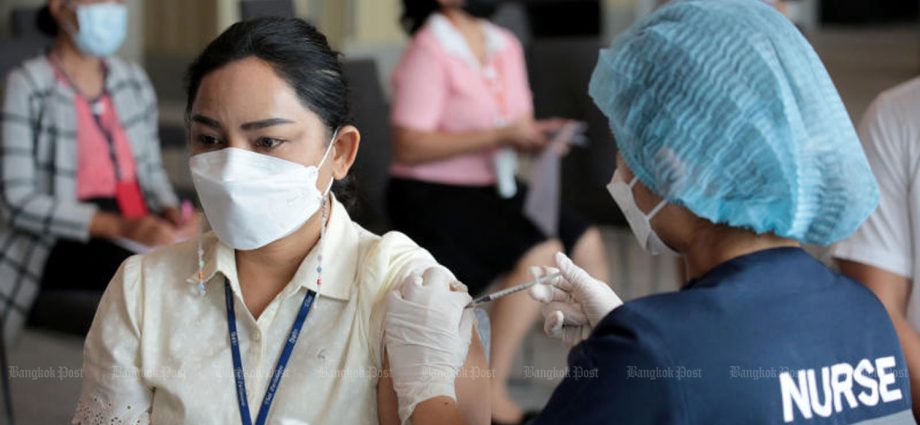Spike expected in respiratory illnesses

Covid-19 infections are expected to peak between June and August and again next January and February, with those who have hitherto escaped the virus likely to contract it, according to a virologist at Chulalongkorn University.
Dr Yong Poovorawan, director of the Center of Excellence in Clinical Virology at the Faculty of Medicine, Chulalongkorn University, wrote on his Facebook page on Friday that a surge in Covid-19 cases is expected.
Thailand will see a spike in seasonal respiratory illnesses after the opening of schools and the arrival of the rainy season, and such cases will peak between June and August, he said.
They will then drop and peak again between January and February, by which point most of the population will have had Covid-19, he said, adding the virus can re-infect a person but in most cases, symptoms will be less severe.
A jump in Covid-19 infections is expected because all of the curbs have now been dropped and full activities have resumed, according to Dr Yong.
“Those who are ‘Novid’, or have never been infected during the pandemic, have a high chance of contracting the disease. The number of people who have never had Covid-19 will be smaller,” he wrote.
Dr Yong said the public should help prevent transmission otherwise the public health system could be overwhelmed. Vulnerable groups who are infected need anti-viral medicines, he added.
Dr Supakij Sirilak, director-general of the Department of Medical Sciences, said on Friday that getting a booster shot remains everyone’s best defence despite the virus having mutated. He said unvaccinated people are at greater risk of developing severe symptoms and more than 40% of Covid-19 patients who died had not received any jabs.
Dr Thira Woratanarat, a public health expert and lecturer at the Department of Preventive and Social Medicine, Faculty of Medicine at Chulalongkorn University, on Friday shared the findings from a study on long Covid symptoms on his Facebook page.
The findings of the study funded by the US National Institutes of Health (NIH) showed that about 10% of Covid-19 patients suffer from long-term symptoms for more than six months, including fatigue, brain fog and dizziness.
Dr Thira said there are subtypes of post-infection and long Covid symptoms associated with Omicron.

